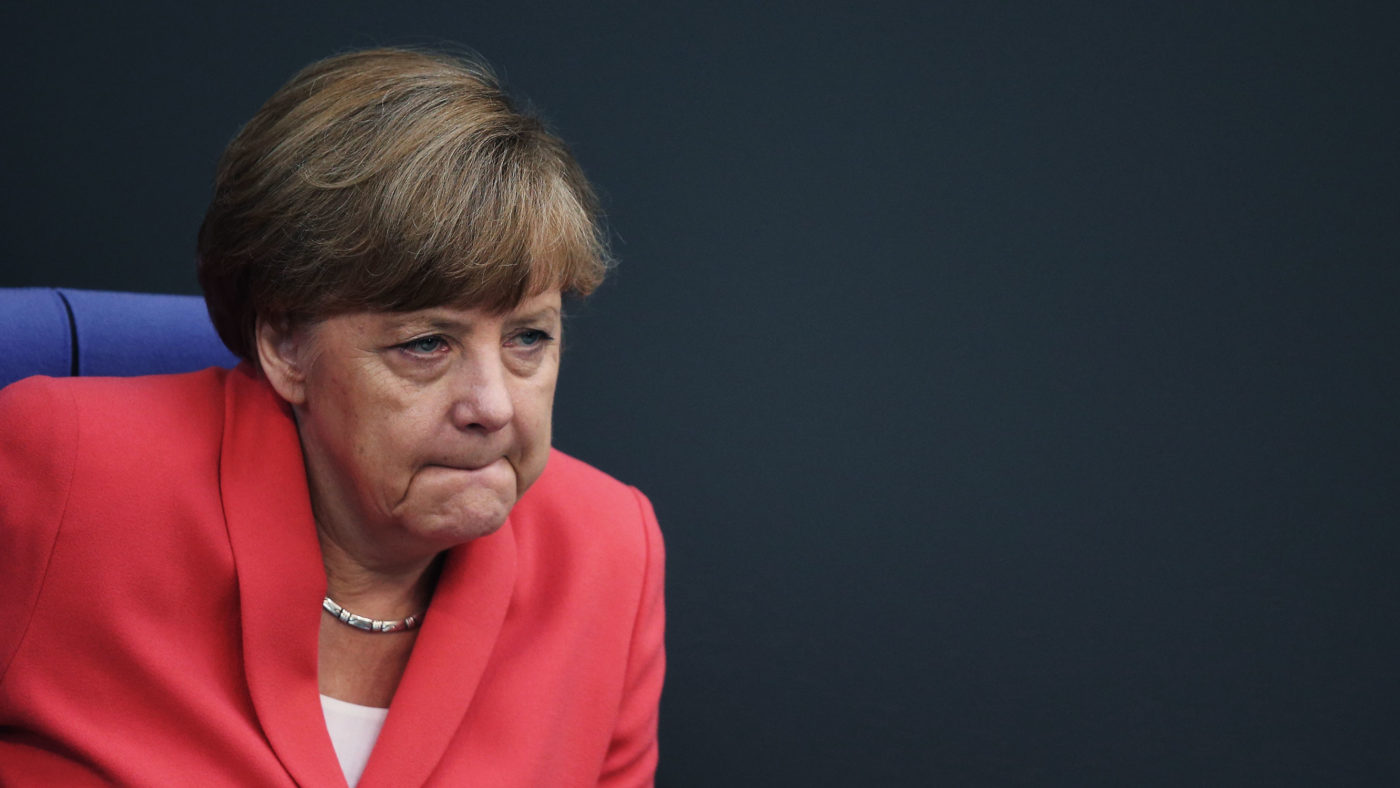For a vast majority of her critics, Angela Merkel’s welcome for Syrian asylum-seekers almost exactly a year ago bears a major portion of blame for the severity of the refugee crisis in Europe. Depending on whom you ask, it was a “very irresponsible” decision, driven by “panic and muddled thinking” or, alternatively, by “starry-eyed optimism.”
Of course, the German Chancellor’s decision to open her country’s doors to the influx of refugees is not immune to criticism. However, it is wrong to assert that, in and of itself, the move was a dramatic game-changer. And even less compelling are the attempts to paint Merkel as naive, or oblivious to the realities of integrating large numbers of immigrants from a foreign culture.
But first, the facts.
The decision of the German government to announce that it was suspending the so-called Dublin Regulation, which required refugees to register and apply for asylum in the first EU country that they reached, did not happen in a vacuum. Before her “welcome” to the Syrians, between the beginning of January and the end of August 2015, more than 700,000 applications for asylum had been made in the EU – more than in the entire year beforehand.
More importantly, the Dublin Regulation had been effectively dead for a long time. Greece, at the time the main country of arrival in the EU, was overwhelmed by the inflow. Other EU and non-EU countries along the way, such as Hungary, Austria and Serbia, were doing little to stop the refugees’ and migrants’ passage to the West.
At the end of last summer, the Hungarian government of Viktor Orbán decided to enforce the Dublin Regulation by blocking off access to Budapest’s Keleti railway station, a point of departure of Austria-bound trains. At the same time, Hungary was completing a razor-wire fence on its border with Serbia to discourage further migration. As a result, thousands of stranded Syrians, Iraqis, and Afghans started accumulating in the Hungarian capital. An improvised refugee camp emerged outside of the station and tensions between the police and the increasingly desperate refugees were rising.
It was in that specific context that Ms Merkel’s decision, coordinated with governments of Austria and Hungary, took place. On the evening of September 4, hundreds of asylum-seekers were first allowed to walk towards Austria alongside one of Hungary’s highways, and then later transported by buses across the border, from where they continued by train towards Germany. During the first weekend of September, more than 20,000 of them arrived in Munich.
Ms Merkel extended her “welcome” to refugees at a time when no good options were available. Those stranded in Hungary had little interest in applying for asylum there – nor were Hungarian authorities keen to accept them. Given the numbers, a forcible return to Serbia, Greece, or Turkey was impractical, regardless of its legality.
A common charge against the outburst of “Willkommenskultur” in September 2015 was that it encouraged others to embark on the gruesome journey from Turkey, Jordan or Lebanon towards the EU. However, as a matter of practical policy, very little has changed, since Syrians have been effectively guaranteed asylum in Germany for years.
The German Chancellor is no blind believer in the virtues of multiculturalism – in fact, in 2010 she stated that the “Multikulti” concept had utterly failed and argued that all immigrants to Germany ought to learn German. Only a few weeks ago, she spoke critically about Islamic dress codes, stressing that “a fully covered woman has little chance of integrating in Germany”.
It was also Ms Merkel who brokered the controversial deal between the EU and Turkey which enables Greece to send migrants back to Turkey unless they apply for asylum upon arrival. In return, the EU pledged to revive Turkey’s accession talks and also provide it with aid amounting to €3 billion.
Again, the agreement can be criticised from various angles. But it is much more an instance of crude realpolitik than an act of hopelessly naive humanitarianism. So far, it has also worked, at least in the sense of bringing a de facto end to the flow of refugees from Turkey to Greece.
One can love her or hate her, but Ms Merkel is no dewy-eyed romantic. She has led her party for 16 years, is serving her third term in office, and more likely than not will form yet another coalition government after next year’s election. To understand and scrutinize her moves, her critics will need to move beyond the caricature that has, since last September, become entrenched in popular imagination.


